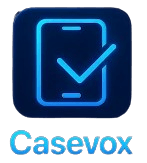Allegiant Capital Recovery Services Debt Collection Harassment❓
Allegiant Capital Recovery Services Debt Collection Harassment? Is Allegiant Capital Recovery Services (ACRS) calling you? Do they threaten to take legal action or garnish your wages? Are they calling you at all hours or several times a day? Are they telling your family and neighbors that you owe a debt? If so, what they are doing is illegal and needs to stop. You have the legal right to stop ACRS phone harassment. If a collection agency violates the FDCPA, you may be eligible to receive up to $1000.00 in statutory damages, along with covering your attorney fees.
Is Allegiant Capital Recovery Services a Scam?
No, according to the New York State Department of the State Division of Corporations, they were formed on November 2, 2016. Allegiant Capital Recovery Services claims to use innovative, ethical practices in their debt collection methods.
According to the Better Business Bureau, there were 8 complaints closed in the last 3 years and 8 complaints closed within the last 12 months.
Who is Allegiant Capital Recovery Services?
Allegiant Capital Recovery Services is third party debt collector located in Lackawanna, New York. They are a relatively new debt collector, listed as being formed in November of 2016 on the New York State Department of State Division of Corporations webpage. The Consumer Frauds Protection Bureau received a complaint in February of 2018 against Allegiant Capital Recovery Services for falsely stating that there was a pending court action when none existed.
🏛️ Allegiant Capital Recovery Services Address: 3280 South Park Ave Suite 1 Lackawanna, NY 14218
📞 Phone: (844) 677-3962
Allegiant Capital Recovery Services Phone Numbers
Are you receiving any harassing phone calls from any of the following numbers?
- ➡️ (844) 677-3962
- ➡️ (844) 390-6908
- ➡️ (716) 780-8224
- ➡️ (866) 217-7313
- ➡️ (855) 215-9940
- ➡️ (844) 537-0761
- ➡️ (786) 796-6801
If the answer is yes, then you are receiving calls from a known ACRS number. You may be a victim of ACRS phone harassment. The list above is not all the numbers that ACRS uses. The calls can be from a different numbers, and it still be Allegiant Capital Recovery Services calling you. Contact our office right away so we can start the process to stop ACRS from calling you illegally. Above all, no one should live with harassment!
Allegiant Capital Recovery Services Collection Tactics
If Allegiant Capital Recovery Services engages in any of the following tactics, you may have a case:
- ▶️ Using profanity or abusive language
- ▶️ Calling you before 8:00 a.m. or after 9:00 p.m.
- ▶️ Calling you multiple times per week
- ▶️ Calling your workplace
- ▶️ Threatening to sue you, harm you, or destroy your credit.
- ▶️ Telling you or anyone else that you’ve committed a crime.
- ▶️ Calling repeatedly for the wrong person
- ▶️ Failing to notify you of your right to dispute the debt.
- ▶️ Trying to collect more than legally allowed.
Consumers often face significant pressure to make payments, and understanding their rights regarding payment demands is crucial.

How to Dispute the Debt
- Request Debt Verification:
- ➡️ Upon receiving a debt collection notice, the first step is to request verification of the debt. According to the FDCPA, consumers have the right to seek written verification of the debt within 30 days of receiving the initial communication.
- ➡️ The verification should include details such as the amount owed, the name of the original creditor, and proof that the debt collector has the legal right to collect the debt.
- ➡️ Taking these steps can help consumers effectively resolve their debt collection issues.
- Submit a Dispute Letter:
- ➡️ If the consumer believes there are inaccuracies in the debt or if they dispute its validity, they can submit a dispute letter to the debt collector.
- ➡️ The dispute letter should be clear and concise, outlining the reasons for disputing the debt and providing any supporting documentation.
- Cease Communication Request:
- ➡️ While the debt is under dispute, consumers have the right to request that the debt collector cease communication with them. This request can be made in writing.
- ➡️ Debt collectors are obligated to honor this request, with the exception of notifying the consumer of legal actions taken or ceasing collection efforts altogether.
- Verification Process:
- ➡️ Upon receiving a dispute letter, the debt collector must cease collection efforts until the debt is verified.
- ➡️ The FDCPA requires debt collectors to conduct a reasonable investigation into the dispute. If they are unable to provide proper verification, they must cease collection efforts and update the consumer accordingly.
- Legal Action:
- ➡️ If the debt collector fails to respond appropriately to the dispute or persists in collection efforts without proper verification, consumers may have grounds to take legal action.
- ➡️ Consumers can file complaints with regulatory bodies and, if necessary, seek legal assistance to protect their rights.
Empowering Consumers:
The debt dispute process under the FDCPA is a powerful tool for consumers to rectify inaccuracies, challenge unfair debt claims, and ensure they are treated justly. By understanding and exercising their rights, individuals can navigate the debt collection landscape with confidence.
Tips for Effective Debt Disputes:
- Keep Records:
- ➤ Maintain thorough records of all communications with the debt collector, including letters, emails, and phone calls.
- ➤ Document the details of the dispute, including the reasons for challenging the debt and any supporting evidence.
- Review Debt Information:
- ➤ Scrutinize the details of the debt collection notice to identify any discrepancies.
- ➤ Cross-reference the information provided by the debt collector with your own records to ensure accuracy.
- Be Timely:
- ➤ Act promptly within the 30-day window to request debt verification.
- ➤ Submit dispute letters and requests in a timely manner to ensure a swift resolution.

Allegiant Capital Recovery Services Lawsuits and Reputation
Allegiant Capital Recovery Services has been involved in several lawsuits and has a reputation for aggressive debt collection practices. The company has been accused of violating the FDCPA and other federal and state laws.
In one lawsuit, a consumer alleged that Allegiant Capital Recovery Services called them repeatedly and used abusive language to try to collect a debt. The consumer claimed that the company’s actions caused them significant emotional distress and anxiety.
In another lawsuit, a group of consumers alleged that Allegiant Capital Recovery Services engaged in deceptive and unfair business practices, including making false statements about their debts and using high-pressure tactics to try to collect payments.
It’s essential to research and review Allegiant Capital Recovery Services’ reputation and lawsuits to understand the potential risks and consequences of working with the company. Additionally, it’s recommended to seek legal advice if you believe you’ve been a victim of debt collection harassment or abuse.

About Us
Consumer Rights Law Firm PLLC is a law firm that specializes in helping clients who are facing harassment from debt collectors in any form, including telephone communication. Rather than suffer alone, contact our office to begin the process to stop the Allegiant Capital Recovery Services harassment. Our office has been assisting consumers since 2010. We have an A+ rating with the Better Business Bureau.
Success Stories
- 🏆 “Allegiant Capital Recovery Services wouldn’t stop calling, even after I asked them to. Consumer Rights Law Firm PLLC sent a letter, and the phone went silent. So grateful for the peace!”
- 🏆 “Allegiant Capital Recovery Services was trying to collect on a debt I didn’t owe. Consumer Rights Law Firm PLLC helped prove it and got them to back off. They saved my credit score!”
- 🏆 “Dealing with Allegiant Capital Recovery Services was stressful and intimidating. Consumer Rights Law Firm PLLC took over communication, explained my rights, and negotiated a fair resolution. Worth every penny!”
FAQs
Who is Allegiant Capital Recovery Services and why are they calling me?
Allegiant Capital Recovery Services is a third-party debt collection agency based in Buffalo, NY, that contacts consumers about past-due debts on behalf of creditors. If they’re calling you, they likely believe you owe a debt they are tasked with collecting.
Is Allegiant Capital Recovery Services a legitimate collector or a scam?
They are a legally registered debt collector (formed in November 2016, BBB-accredited since 2025), but always request written verification before making any payments to protect against errors or scams.
Can Allegiant Capital Recovery Services harass me with calls or texts?
No. Under the FDCPA, they’re prohibited from harassment such as repeated calls, threats, obscene language, or contacting you before 8 a.m. or after 9 p.m.
What should I do if Allegiant Capital Recovery Services keeps calling me?
Keep detailed records of the calls, send them a written cease-and-desist request, and if they continue, file complaints with the CFPB, FTC, or a state attorney general, or seek legal assistance.
Can Allegiant Capital Recovery Services affect my credit score?
Yes. They can report a delinquent debt to credit bureaus, which may lower your score. You have the right to dispute any inaccurate or unverifiable entries.
Are Allegiant Capital Recovery calls recorded?
Yes. The company states all calls are recorded for compliance and training purposes—use this recording if they misrepresent the debt.
Can I sue Allegiant Capital Recovery Services for FDCPA violations?
Absolutely. If they violate federal or state debt collection laws—like calling after you’ve asked them to stop, making threats, or misrepresenting the debt—you may be entitled to statutory damages and attorney’s fees.
What phone numbers does Allegiant Capital Recovery Services use?
They often call from toll-free and spoofed numbers such as 833-678-1344, 866-217-7313, 855-215-9940, or 844-390-6908.
Can I negotiate payment with Allegiant Capital Recovery?
Yes, you can. They offer payment plans through their portal or by phone, but any agreement should be in writing. Also, note that payment doesn’t guarantee removal of the negative entry from your credit report.
How can I stop Allegiant Capital Recovery Services from continuing to contact me?
Send a written cease-and-desist letter demanding they stop contacting you. If they persist, report them to federal agencies and consider filing a lawsuit.







